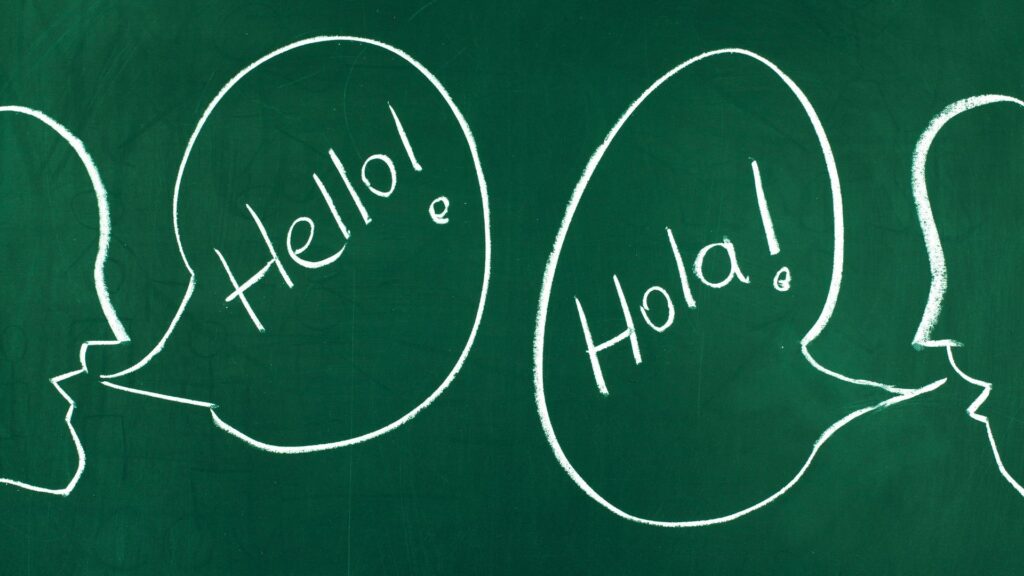
A Guide for Parents in Dubai Raising Bilingual Children
In Dubai’s vibrant and multicultural society, it’s not common—it’s expected—for children to be exposed to multiple languages from an early age. At Talking Brains Center in Dubai, parents often ask:
These are essential questions, and answering them correctly can help your child develop strong communication skills, confidence, and a lifelong love of language.
Your mother tongue is the language you speak most fluently—the one tied to your culture, emotions, and memories. It’s also the most powerful tool you have when communicating with your child.
Speaking your mother tongue provides:
Children whose parents speak to them in their strongest language develop more complex language skills. This is especially important for families seeking speech therapy in Dubai, as children with a strong first language often acquire additional languages more easily.
Tip for parents in Dubai: Don’t feel pressured to switch to English if it’s not your strongest language. Your child will pick up English naturally from school and their environment.
The earlier a child is exposed to more than one language, the better—but only when the first language is developing well. There are two main paths to bilingualism:
Both are effective if done right. The key in Dubai is to ensure that both languages are used in rich, meaningful ways—not just for commands or surface-level conversation.
The goal of bilingualism is not just to learn a second language, but to maintain and grow both languages. This is called additive bilingualism, and it ensures your child doesn’t lose the first language while gaining the second.
On the other hand, subtractive bilingualism occurs when the second language replaces the first. This can lead to:
At the Talking Brains Center in Dubai, we work with many families facing these challenges. With the right guidance, this can be avoided.
Here are strategies that work well for families raising bilingual children in Dubai:
This popular method assigns one language to each parent or caregiver. For example:
This helps children distinguish languages more easily and reduces confusion.
Each language needs quality time and exposure. Try:
It’s okay if your child mixes languages—this is called code-switching and it’s normal in bilingual development. The goal is consistent exposure, not perfection.
If your child uses the wrong word or mixes grammar, correct them gently and model the correct way. For example:
In our work with families receiving speech therapy in Dubai, we’ve seen some recurring mistakes that can slow language development:
Each of these mistakes can lead to delayed speech, limited vocabulary, and lower self-esteem, especially if the child feels pressure to speak a language they’re not ready for.
If your child is:
…it may be time to consult a professional. At Talking Brains Center in Dubai, our speech therapy team offers bilingual assessments that take both languages into account—something that’s essential in a multicultural setting.
At Talking Brains Center in Dubai, our speech-language pathologists are trained to assess and support bilingual children. We help families:
If your child is showing signs of emotional distress related to language use—such as anxiety, frustration, or refusal to speak—we may recommend a collaborative plan that includes:
This integrated, child-centered approach ensures that language development supports – not hinders – your child’s social, emotional, and cognitive growth.
Q: Will bilingualism delay my child’s language development?
A: No. Bilingual children might speak slightly later, but this is usually temporary. If delays persist, speech therapy in Dubai can help.
Q: What if my child refuses to speak the home language?
A: Keep using it consistently and make it fun. Read stories, play games, and let them see its value in real life.
Q: Can I switch languages with my child later on?
A: It’s best to be consistent, but if needed, switch slowly and support the new language with rich, engaging input.
Raising a bilingual child in Dubai is a wonderful opportunity. It opens doors socially, culturally, and professionally. But it requires patience, structure, and the right kind of support.
Your strongest language is your best tool for connecting with your child. Use it confidently. Encourage the second language thoughtfully. And remember—help is available if your child needs support along the way.
Need help navigating bilingual development?
Book a consultation at Talking Brains Center in Dubai. Our experts in speech therapy are here to support you and your child every step of the way.